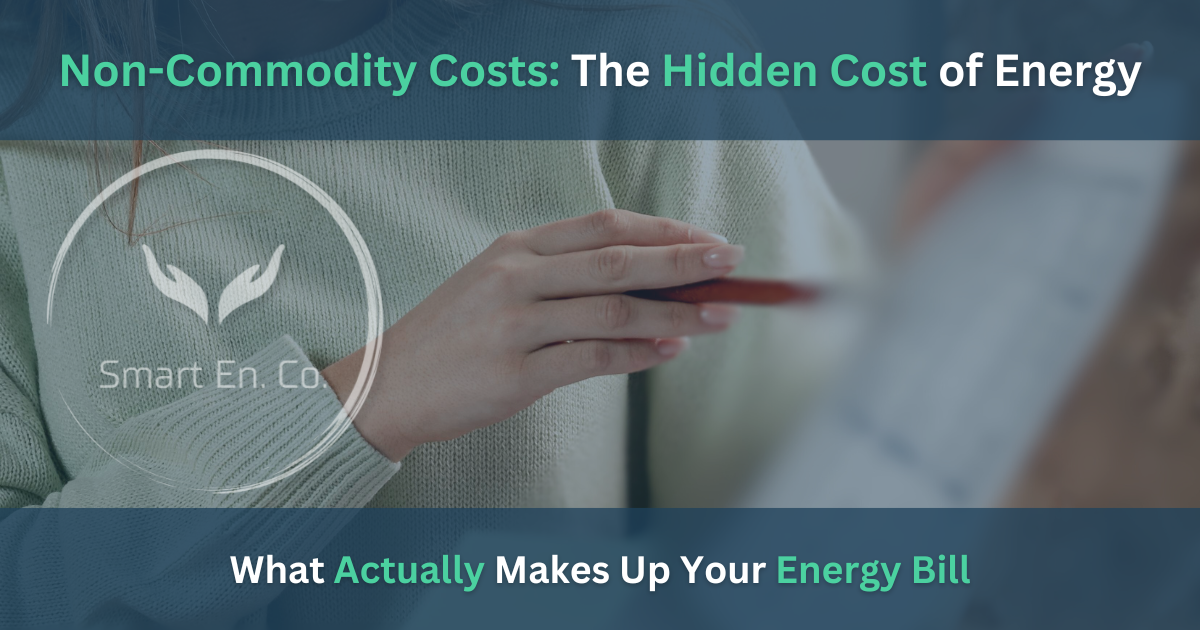Breaking Down Non-Commodity Costs: What’s Driving Your Business Energy Bill?
Ever Wondered What You’re Actually Paying For?

All businesses will have to pay non-commodity costs on their energy bills, but what do these costs involve? And how much should you expect to pay? Our guide takes you through a breakdown of all the non-commodity costs you need to know about and how they affect your business.
What Are Non-Commodity Costs?
Non-commodity costs, also known as ‘third-party costs’, are compulsory charges added to your energy bill to cover the cost of delivering energy to consumers. These costs include:
- Energy generation infrastructure.
- Transportation and grid maintenance.
- Government-imposed taxes and levies to support renewable energy and carbon reduction.
Commodity Vs Non-Commodity Costs On your energy bill:
- Commodity Costs refer to charges for the energy you use. These costs are directly tied to your level of consumption and relate to wholesale energy prices.
- Non-Commodity Costs are the ‘non-energy’ portion of your bill. They include transmission, distribution, and government-imposed charges.
Why Do I Have to Pay Non-Commodity Charges?
Non-commodity charges fund essential works to ensure the energy system operates smoothly and reliably. This includes:
- Maintenance and operation of the UK’s energy grid.
- Supporting renewable energy projects and low-carbon initiatives.
- Covering regulatory processes and infrastructure development.
These charges ensure that energy can be delivered safely and efficiently to businesses while supporting sustainable practices to reduce emissions.
What Is My Energy Bill Made Up Of?
Your energy bill is typically split into two main sections:
- Wholesale Energy Costs: These account for roughly one-third of your bill and refer to the energy you use.
- Non-Commodity Costs: These can make up as much as 60% of electricity costs and 40% of gas costs, including:
- System charges.
- Government levies.
- Environmental obligations.
Types of Non-Commodity Costs
System Charges:
- Transmission Network Use of Systems (TNUoS): Covers the cost of installing and maintaining high-voltage transmission systems across the UK.
- Distribution Use of System (DUoS): Funds the operation, maintenance, and development of local distribution networks that deliver energy to your premises.
- Balancing Services Use of System (BSUoS): Charges for balancing the energy supply and demand on the National Grid, ensuring system stability.
Government Levies and Taxes:
- Carbon Reduction Commitment: A mandatory initiative to reduce carbon emissions by 80% by 2050.
- Climate Change Levy (CCL): A tax on businesses based on energy consumption to encourage energy efficiency.
- Renewables Obligation (RO): Introduced to support large-scale renewable energy projects.
- Feed-in Tariff (FiT): A subsidy for small-scale renewable generation projects.
- Contracts for Difference (CfD): Guarantees renewable energy generators a fixed price for exported electricity to promote low-carbon investments.
Will Non-Commodity Costs Be Increasing?
Yes, non-commodity costs are expected to rise as the UK moves closer to its net-zero emissions targets. Key reasons include:
- Increased investment in renewable infrastructure.
- Rising grid maintenance costs due to system upgrades.
- Expanding environmental levies and taxes to fund decarbonisation efforts.
Projections: By 2031, non-commodity costs could make up 80% of total energy bills, making it essential for businesses to understand and plan for these increases.
How Do Non-Commodity Costs Affect Your Business?
Non-commodity costs directly impact your energy bills and overall operating expenses. These costs can account for up to 60% of your electricity bill and 40% of your gas bill.
For example:
- High energy consumption leads to higher Climate Change Levy (CCL) payments.
- Businesses with inefficient energy usage pay more for balancing services and grid maintenance.
Strategies to Manage Non-Commodity Costs
While non-commodity charges are largely unavoidable, businesses can take steps to manage and reduce their impact:
- Fix Your Energy Rates: Secure a fixed-rate energy contract to stabilise your costs.
- Conduct Energy Audits: Identify inefficiencies in your energy usage and implement changes to reduce overall consumption.
- Invest in Smart Meters: Track your energy usage in real-time and avoid overpaying on estimated bills.
- Improve Energy Efficiency: Implement measures like LED lighting, energy-efficient equipment, and better insulation to cut down on usage.
Conclusion
Non-commodity costs are a complex but vital part of your energy bill. By understanding what these costs include and how they are calculated, businesses can take proactive steps to manage their energy expenses. From conducting energy audits to securing fixed-rate contracts, there are practical ways to minimise the impact of rising non-commodity charges.
At The Smart Energy Company, we’re here to help you navigate the complexities of energy billing and identify opportunities to reduce costs.
Contact us today to review your energy contract and optimise your energy strategy.
Explore More Insights
Dive into more energy updates, market reports, and supplier insights tailored for your business


